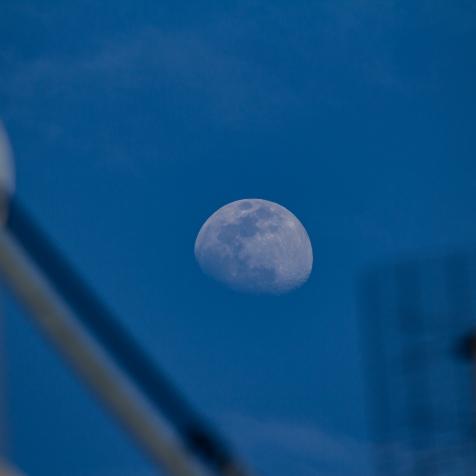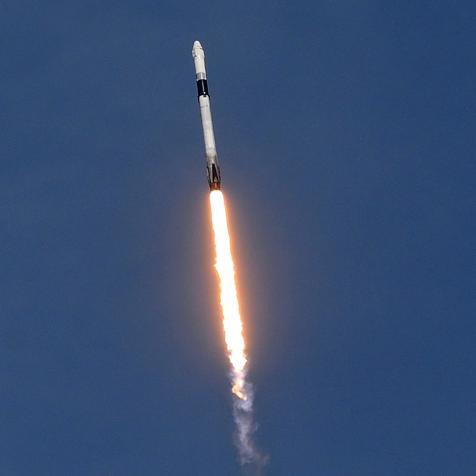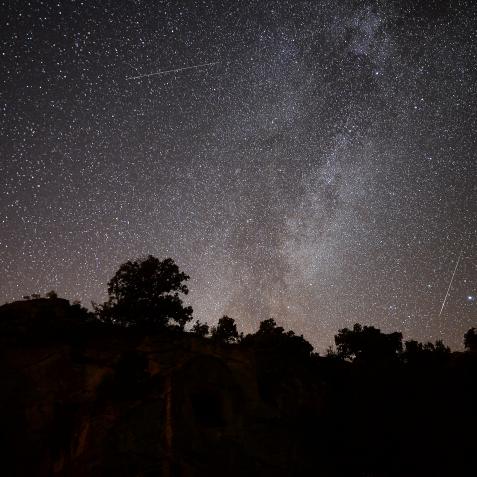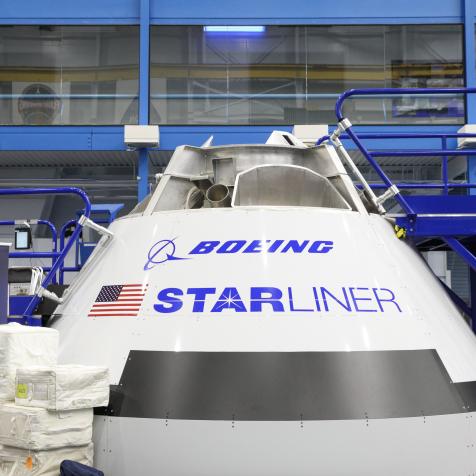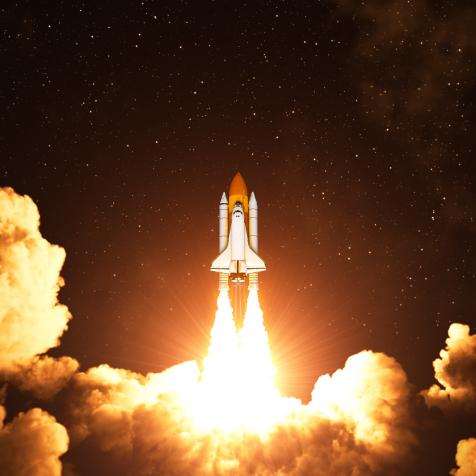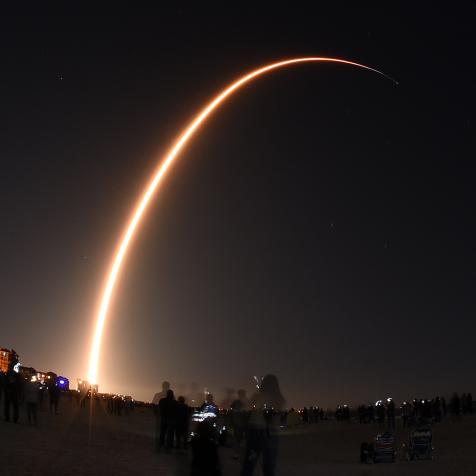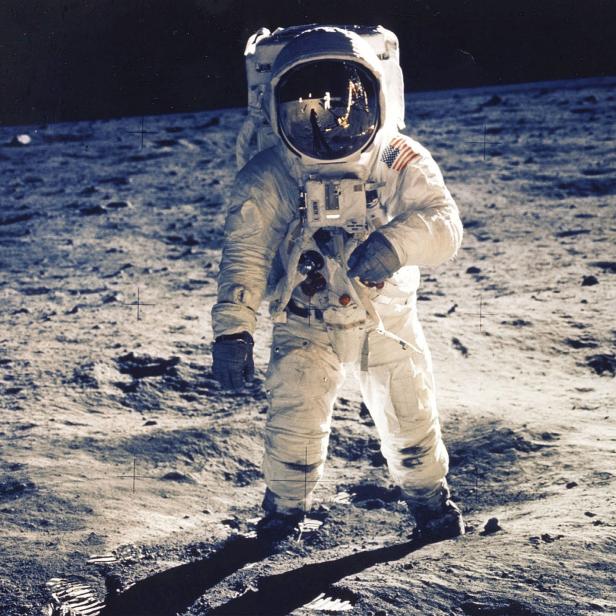
NASA
Only 12 People Have Been on the Moon
Neil Armstrong's trail-blazing lunar jaunt is common knowledge. Since that iconic touchdown on July 20, 1969, only 11 people have dirtied their astro boots with moon dust. But who were they? And why haven't we gone back?
We Need Some Space
We don't have to get into the details of the Space Race of the '60s, right? Let's just sum it up by saying that, from the years 1967 to 1972, NASA was focused on planting a flag on Earth's little orbiting buddy. With Project Apollo, six missions reached the moon. But its purpose went beyond just getting there. NASA's goals included the following:
- Establishing the technology to meet other national interests in space.
- Achieving preeminence in space for the United States.
- Carrying out a program of scientific exploration of the Moon.
- Developing man's capability to work in the lunar environment.
The last time humanity set foot on the moon was 1972. Yep, Pink Floyd releasing "Dark Side Of The Moon" was more recent news. Why have we seemingly moved on from the moon? Simply put, NASA's priorities changed. (It's not you, moon, it's us.)
The nation faced an oil crisis in 1973 and government funds needed to be allocated there, not on the moon. Just like that, the Apollo missions were canceled, forced to end after Apollo 17. With a tighter budget than it had ever had, the space agency shifted gears toward Skylab, the space shuttle program, and various satellites and probes. Maybe not as sexy as moonwalking, the subsequent NASA milestones were nonetheless important.
But all was not lost. In 2018, the moon got popular again. NASA announced plans send humans there as early as 2020. More recently, Elon Musk announced that SpaceX would send humans to the moon — er, around the moon, anyway. If you weren't around for the Apollo program, you still might be alive when a person sets foot on the lunar surface!

NASA
That's Twelve Small Steps For Man ...
The only 12 people to set foot on the moon were all American men, and no one has been to the moon more than once. To say this is an exclusive club is putting it lightly. So let's meet the team, shall we?

NASA
- Neil Armstrong. He famously touched moon dust on July 20, 1969, on the Apollo 11 mission. A Navy pilot, engineer, and war veteran, Armstrong was Apollo 11's commander.

NASA
2. Buzz Aldrin. Also aboard Apollo 11, Aldrin was right behind Armstrong as they exited the Lunar Module Eagle to set foot on the moon for the first time.

NASA
3. Pete Conrad. He was the commander of 1969's Apollo 12 mission to the moon, notably uttering a goofy line as he touched down on lunar soil.

NASA
4. Alan Bean. The lunar module pilot of Apollo 12, Bean retired from training NASA astronauts in 1981 to focus on his art (you can see his spacey work here).

NASA
5. Alan Shepard. Also the first American ever launched into space, he reached the moon as commander of the Apollo 14 mission.

NASA
6. Ed Mitchell. He was the lunar module pilot of Apollo 14 but later gained notoriety for his outspoken opinions on UFOs. In 1972, he founded the Institute of Noetic Sciences, which focuses on bringing "objective scientific tools and techniques together with subjective inner knowing to study the full range of human experiences."

NASA
7. David Scott. After having flown on Apollo 9 as command module pilot, he finally reached the moon with Apollo 15 in 1971. He, and his crew, tarnished their reputation a tad with the "postage stamp incident."

NASA
8. James Irwin. He was the lunar module pilot for Apollo 15. In the last few decades of his life, the creationist astronaut took several groups on expeditions to find Noah's Ark.

NASA
9. John Young. He orbited the moon on the Apollo 10 mission, then touched down on the moon as commander of the Apollo 16 mission in 1972. In 1981, he also commanded the first space shuttle flight.

NASA
10. Charles Duke. He reached the moon with Apollo 16 but is also well known for his role in Apollo 11. During humanity's first trek to the lunar service, Duke served as CAPCOM (capsule communicator), broadcasting his distinctive southern drawl all over the world.

NASA
11. Jack Schmitt. A geologist first, he was the first scientist not only on the moon, but in outer space too. His feet hit the moon in 1972 as he served as Apollo 17's lunar module pilot.

NASA
12. Gene Cernan. Commander of Apollo 17, he was the last person to set foot on the moon. As he boarded the lunar module on December 13th, 1972, he said, "I'm on the surface; and, as I take man's last step from the surface, back home for some time to come — but we believe not too long into the future — I'd like to just [say] what I believe history will record. That America's challenge of today has forged man's destiny of tomorrow. And, as we leave the Moon at Taurus-Littrow, we leave as we came and, God willing, as we shall return: with peace and hope for all mankind. Godspeed the crew of Apollo 17."
This article first appeared on Curiosity.com. Click here to read the original article.










